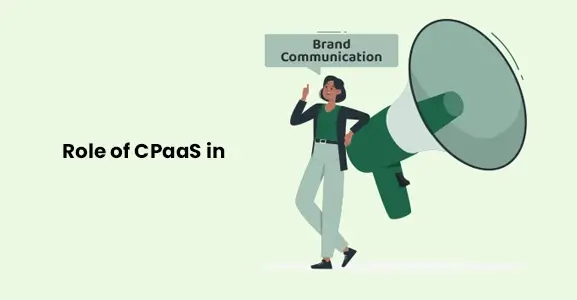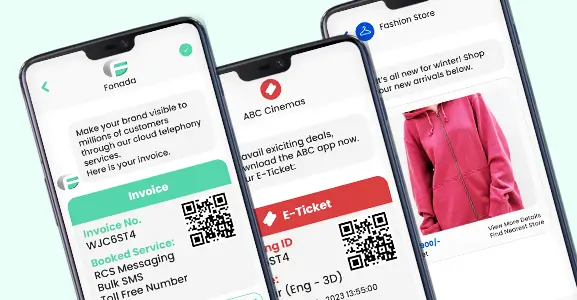Are you the owner of a growing business and satisfied with your current growth rate? If so, now is the right time to consider a few key aspects that require your attention. Do you have the necessary technology to manage an anticipated surge in customer calls? Is your customer care team well-trained to handle complex customer queries? You must be wondering why you need to think about these aspects when you can see rapid growth in terms of sales and customers. Well, the answer lies within the question itself.
With the growing number of customers, the responsibility of handling each customer query with perfection becomes a must, and it can only be achieved when your customer care executives are well-trained. Call center scripts are the most important element of each customer handling training. These scripts help agents to provide consistent and effective support to customers.
This blog emphasizes the significance of call center scripts and how businesses leverage them to empower their agents. If you want to dig more about these scripts and how to utilize them effectively, we recommend reading the entire blog article. It will help you address any queries you may have about this topic.
What Is Call Center Scripts?
A call center scripts is a written playbook or a document that trains agents to respond to incoming and outgoing phone calls on behalf of a company or organization. Call center script enables agents to improve their productivity and reduce errors.
Customer calling scripts are written in a human tone, and it is ensured that it does not sound robotic. There are several factors that are considered while writing these scripts, like it should help agents respond to customer queries in every possible circumstance.
Types Of Call Center Scripts
There are different types of call center scripts and they are written keeping in mind different situations in which an agent may get stuck during a conversation with a customer. These scripts help them deal with the situation by assisting them during telephone conversations with customers.
Some of the popular call center scripts templates are inked below:
Call Center Scripts Best Practices
There is a popular saying that we have all heard: “The first impression is the last impression” and it is important to follow it when you are conversing with your customers. An agent must be compassionate and a good listener when talking to customers. Starting the conversion with a good greeting can help your customers feel more comfortable. These scripts help agents understand the importance of the “first hello” and how they should initiate follow-up conversations to keep the conversation going.
1. How To Greet Customers On Live Chat?
Live chat interactions are concise and direct in nature. Agents are instructed to follow some pre-decided steps as per their cloud call center scripts for live chats. This script helps agents answer all customer queries in a short and concise manner.
Some of the most used Live Chat Scripts are listed below.
- Hello, [Customer Name]! Thank you for contacting [ Your Business Name]. How may I assist you today?
- Hey there! thank you for choosing us. How can I help you?
- Hi, [Customer Name]! Thanks for reaching out. Give me just a moment to review your requirements, and I’ll do my best to help you with your queries.
- Welcome back, [Customer Name]! We are delighted to see you again. How can I assist you today?
- Hi, [Customer Name]! Welcome back to [Business Name]. Your patience is appreciated, and I’ll quickly review your message to provide the best support.
2. How To Greet Customers Over The Phone Calls?
Over-the-phone interactions with customers are entirely different from chat conversions, as these conversations are more engaging and let customers talk to agents in real-time. Agents have more time to greet customers in a more personalized way to keep the interaction engaging and straightforward. The customer service call script ensures a smooth conversation between the customer and the agent and fosters healthy customer relationships.
Here are a few call center greeting phrases you can explore for initiating your conversation in a friendly and welcoming fashion:
- Thank you for reaching out to [company] customer service. My name is [Agent name]. How may I help you today?
- Welcome to [company] customer service. My name is [name]. How Can I help you?
- Hello, I am [ Agent name] from [company] customer service. How may I help you?
3. Call Center Scripts: How To Apologize To Customers?
Being kind during telephone conversations is the key to customer satisfaction. This means that you understand how to make customers feel special when they show disappointment with your services and products. You can understand this with the help of a simple example: Suppose you call the customer service of a company to tell them about your experience with their services or products. The customer service staff listens to your problems politely and apologizes. He even gives a guarantee to solve your problem. Satisfied with obviously how you will feel at that time. This means that by handling customer queries well, you can fix service issues without losing them.
Your agents should be taught and trained on how to handle situations such as when a customer is quite angry or not satisfied with your service or products. The agent should apologize to the customers on behalf of the company and try to calm them down. This approach should be polite and effective. When your customer care executives know how to calm the situation and say sorry, this shows your company values all its customers and is ready to resolve all the problems.
4. How To Apologize To Customers On Live Chat?
When agents are in the live chat conversation with customers, it’s crucial to keep things simple and short. They should sound apologetic with their tone to express how sorry they are for any problem the customer has faced.
So, keep track of time while chatting. Agents should apologize immediately but not so briefly that it seems like they don’t care. Also, they should try to focus on finding solutions and customers should not feel that they are being ignored.
5. How To Apologize To Customers Over The Phone?
Your customer service representatives can use the power of their voices to convey empathy during phone interactions. While it’s challenging to script tone, you can guide your agents to listen to the customer’s emotions and respond with a compassionate voice. In your training materials, provide your agents with various strategies for handling customers who believe they’ve had a negative experience. Keep in mind that some customers will be grateful for agents who try to resolve issues, but there’s always that one person who insists on speaking with the manager, no matter how much you apologize.
Here Are A Few Call Center Scripts To Try:
- We understand your current situation, and we genuinely apologize for the difficulties you faced. I’m personally reaching out to the relevant department to address your concerns immediately. It might take around 15 minutes. Thank you for your patience.
- “We’re extremely sorry for the trouble you’ve had, and we want to fix it for you. Let me take a moment to find a solution, and I’ll get back to you soon.”
- “We don’t want our customers to go through this. I’m really sorry you had this experience. There are a few things we can try to solve this problem. Let’s work on it together, and if we can’t figure it out, I’ll get my manager to assist you further.”
- Call Center Script: How to Follow up with Customer.
Imagine a situation where a customer reaches your support team through Call Center IVR with his query. The customer gets all the necessary assistance, and his problem is solved within no time. This reflects the efficiency of your call center and how well you train your agents. However, in some situations, the problems may be complex. To deal with such situations, your agents must have all the information about the customer’s background and the problem he is currently facing.
Also, if a customer has already reached out before, they might not be talking to the same agent who understands the full context of their problem. Call center scripts for customer follow-ups help them tackle such situations with perfection.
6. How To Follow Up With Customers On Live Chat?
Following up on live chat interactions can be a bit challenging. Especially when the chat session ends, the customer may not reconnect with the same agent during their next visit. However, the chat itself provides a record of the conversation, offering agents some valuable information for their follow-up.
Yet, tackling intricate problems through chat can be tricky. When crafting live chat scripts, it’s important to ensure that agents request the customer’s email or alternative contact information. This allows for a seamless transition to a different communication channel if the issue becomes too complex for the chat.
7. How To Follow Up With Customers On Call?
This way, if an agent feels he can’t answer all of the customer’s questions, he can use call routing to navigate the same call to the most appropriate department. Collected customer information is stored in the system, and the next agent can easily use it to assist the customer with his queries and issues. Furthermore, it’s a smart practice for customer service agents to inform customers about the expected response time if they are unable to resolve an issue immediately. It’s important to provide a clear and specific time frame while also encouraging agents to use straightforward language and avoid vague communication whenever possible.
This way, if an agent feels he can’t answer all of the customer’s questions, he can use call routing to navigate the same call to the most appropriate department. Collected customer information is stored in the outbound calling system, and the next agent can easily use it to assist the customer with his queries and issues.
Here Are Some Helpful Phrases To Use When Talking To Customers:
- “I don’t want to keep you waiting on hold while I wait for my supervisor’s response. Is it okay if I speak with them and call you back at this number within the next two hours?”
- “I apologize for the delay, but I can’t provide a quick answer through live chat. If you share your name, email, or phone number, I’ll be happy to contact you within 30 minutes with a solution to your problem.”
- “I noticed that you spoke with [agent name] last week regarding the same problem. I’m sorry we haven’t resolved it yet. According to our notes from that conversation, is this still the issue you’re facing? I’ll begin working on it immediately.”
- “Hello, I’m sorry to see you reaching out again. I see that you received assistance from [agent name] yesterday. Have you encountered a new issue, or do you still require help with the previous matter? Rest assured, we are committed to resolving this for you today.”
FAQs
The script is crucial in call centers because it provides consistency, ensures accurate information delivery, and helps agents navigate complex customer interactions, ensuring a positive customer experience.
To write one, start with clear objectives, empathetic language, and regular updates for ongoing improvement.
Call center scripts or customer service scripts are predefined, structured sets of dialogues and responses that agents use when interacting with customers. They ensure consistency and accuracy in customer interactions.
Call center scripts enhance customer service by providing agents with standardized responses, ensuring accurate information, and guiding them to address customer needs consistently, leading to improved service quality.
Scripts can significantly aid agent training by providing structured sequences of actions or dialogue, enhancing learning efficiency, and enabling the agent to handle specific tasks or scenarios effectively.
Call centers should update scripts regularly, ideally every 3-6 months, to stay current with product/service changes, customer preferences, and industry trends, ensuring effective customer interactions.

Dec 11, 2024
Top Contact Center Optimization Tools For 2024
“A thriving business knows how to fetch maximum output from limited resources by optimizing ca... Read More
Nov 13, 2024
What Is Brand Communication? CPaaS Role Explained
Did you ever wonder why some advertisements grab your attention instantly, while others do not? The... Read More
Nov 01, 2024
What Is Automated Messaging And How Does It Work?
Automated messaging or text automation empowers businesses and marketing professionals to connect wi... Read MoreLatest Updates
From Fonada
Industry Insights, Trends, Innovations, Updates, and Case Studies from Industry Experts
View
Customer
Reviews
Discover why our customers love us - read their authentic and heartfelt reviews!
View
Case
Studies
Explore real-life scenarios, offering analysis, and solutions to practical challenges
View
Convert Leads Into Sales With Fonada
Trusted CPaaS Solution Provider








